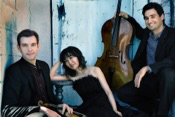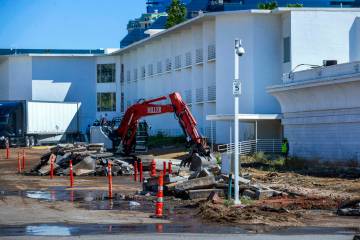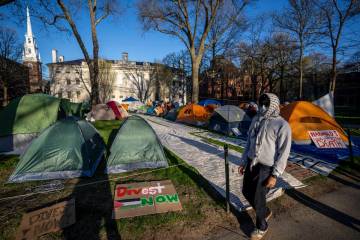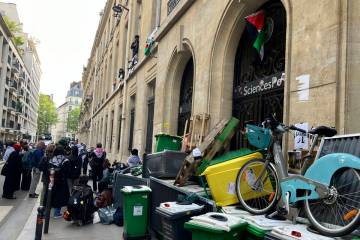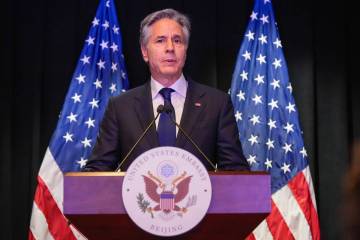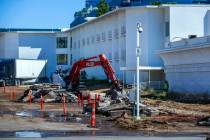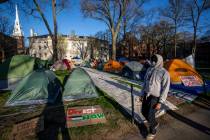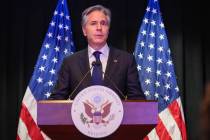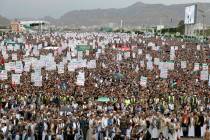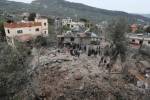Horszowski Trio creates powerful music experience
Their playing is impeccable. Their artistry is already at a level that most chamber ensembles strive for but seldom attain. Their reputation is growing both domestically and internationally. And their debut performance took place barely three years ago.
They are the Horszowski Trio and if they stay together, they will make an indelible mark on chamber music for decades. Not that there appears to be a threat of their breaking up, but in their world both performers and audiences tend to be fickle. Should that happen the music world will be poorer for it, at least if their spectacular appearance on Tuesday as part of UNLV’s Chamber Music Series is any indicator.
The New York-based Trio consists of violinist Jesse Mills, cellist Raman Ramakrishnan and pianist Rieko Aizawa. The three play as one, as should be the case in great chamber music. And their music–making is great, have no doubt about that.
Their program consisted of three works: Piano Trio No. 1 by Camille Saint-Saens from his Opus 18, Beethoven’s Piano Trio No. 1 (“The Ghost”) from his Opus 70 and a new work by composer Eric Moe titled “Welcome to Phase Space.”
The Saint-Saens work led off the evening. The first of its four movements (allegro vivace) began with a playful introduction, then transitioned to a lush statement of the principal theme developed both dramatically and romantically. The second movement (andante) introduces all three players stating its theme in unison, then an expressive transition leads back to the beginning. A light and bouncy third movement is a scherzo with abundant interplay. The final movement (allegro) begins with a lovely but brief passage that gives way to a rather forgettable closing calling for substantial technical prowess.
Then came Eric Moe’s work, designed as a musical concept of multidimensional space. The hard-to-identify melody is repeated several times in severely contrasting variations. The point is to alternate feelings of hot and cold as one might experience on a voyage through space. Some of this piece could pass as theme music for the film “2001, a Space Odyssey.” It is sometimes (but not often) tonal, melodies are angular and harmonies edgy. The New York Times has said Moe “subversively inscribes classical music into pop culture.” Moe teaches at Carnegie-Mellon University in Pittsburgh.
The evening’s final piece was Ludwig von Beethoven’s Piano Trio No. 1 in D Major from his Opus 70. It is subtitled “The Ghost,” a label applied by Beethoven’s publisher because the second movement reminded him of “Hamlet.” Understandably so, because of a number of eerie spectral moments in the slow movement, particularly in the expressive recapitulation of its two principal themes and its hushed, nearly breathless coda.
The third movement is a scherzo — a jocular exercise — performed with proper spirit by the artists. It leads to the concluding presto — a constantly interesting and frequently surprising piece with its sudden unexpected Beethovian harmonic shifts.
Of the members of the Horszowski Trio, there is no single star; in fact, they are all stars, making exceptional music as one. Violinist Mills is a graduate of The Juilliard School and has performed at Carnegie Hall, the Kennedy Center and Chicago’s Ravinia Festival, to mention but a few of his credits. Mills also is known as a composer and arranger as well as a champion of contemporary music. Cellist Ramakrishnan holds a bachelor’s degree in physics in addition to a master’s in music from Juilliard. He has performed extensively throughout the United States, India and the Middle East. Aizawa, the diminutive yet powerful pianist, studied at the Curtis Institute and Juilliard. She was the last pupil to study with Mieczyslaw Horszowski in whose honor the trio takes its name. Her performance credits include Lincoln Center, Boston’s Symphony Hall, Chicago’s Orchestra Hall, and Vienna’s Konzerthaus in addition to other major venues in the United States, Canada and Europe.
Contributing to the event’s exceptionally high quality was the acoustical properties of the Rando Recital Hall. For an intimate yet tonally superior musical event, as this was, it is doubtful there can be a better venue in the city.
REVIEW
Who: The Horszowski Trio
When: Tuesday
Where: Doc Rando Recital Hall at UNLV
Grade: A



